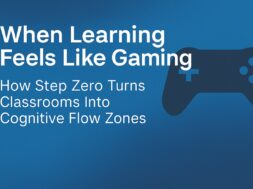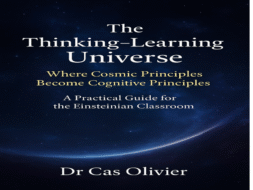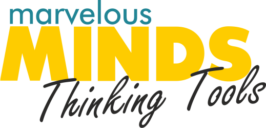The only real way of learning MUST mirror the way humans naturally learn: through curiosity, exploration, and experimentation. This is what humans do, day in and day out.
Have you ever seen a person moving around and memorising what ever the person comes across? NO, it is absurd.
SO, WHY DO WE APPLY IT IN SCHOOL AND WHEN PREPARING FOR A TEST?
In today’s rapidly evolving world, critical thinking has become an essential skill—a cornerstone for success in learning, the workplace, and life.
Why would traditional education systems prioritize rote memorization and passive learning, which stifles students' ability to think independently?
To truly prepare learners for the complexities of the modern world, educators must shift towards inquiry-based learning (IBL).
What Is Inquiry-Based Learning?
Inquiry-based learning is a teaching method that places students at the centre of the learning process. Instead of simply absorbing information, students are encouraged to ask questions, explore solutions, and actively engage with the subject matter. This approach mirrors the way humans naturally learn: through curiosity, exploration, and experimentation.
In IBL classrooms, educators serve as facilitators rather than lecturers. They guide students in framing questions, investigating problems, and synthesizing knowledge. This approach not only fosters a deeper understanding of the content but also helps students develop essential skills such as problem-solving, collaboration, and adaptability.
The Connection Between Inquiry and Critical Thinking
Critical thinking and inquiry are intrinsically linked. When students engage in inquiry-based learning, they:
Analyse and Evaluate Information: Students learn to discern credible sources, assess evidence, and draw logical conclusions.
Apply Knowledge Creatively: By solving real-world problems, learners bridge the gap between theory and practice.
Reflect on Their Thinking Process: Metacognition—thinking about one’s own thinking—is a natural outcome of inquiry, enabling students to refine their approach to learning.
Designing Inquiry-Based Lessons
Transitioning to an inquiry-based approach requires thoughtful planning. Here are some strategies to help educators design effective IBL lessons:
1. Start with a Compelling Question
Every great inquiry begins with a powerful question. This could be an open-ended question that challenges students to explore, such as, “How can renewable energy transform our cities?” or “What would a sustainable community look like?” The key is to choose questions that are relevant, engaging, and connected to the curriculum.
2. Create a Safe Space for Exploration
Students are more likely to engage in inquiry if they feel safe to express their ideas and take risks. Encourage an environment where mistakes are seen as opportunities to learn.
3. Provide Tools and Resources
Equip students with the resources they need to investigate their questions. This could include access to books, digital tools, or hands-on materials. Empower them, for example to find information, organise it with the purpose to detect patterns as they classify, compare and contrast, conduct research, analyse data, and present their findings.
4. Encourage Collaboration
Inquiry thrives in a collaborative setting. Group work allows students to share diverse perspectives, brainstorm solutions, and learn from one another.
5. Guide Reflection and Assessment
Reflection is a crucial part of the inquiry process. Ask students to evaluate their learning journey: What did they discover? How did their thinking evolve? Formative assessments can also help teachers identify gaps in understanding and provide targeted support.
Embracing the Shift
Shifting to an inquiry-based model can be transformative for both students and educators. It requires a mindset shift from delivering content to facilitating learning. While the transition may pose challenges, the rewards are immense: students who are not just passive recipients of information but active participants in their own education.
Conclusion
Inquiry-based learning is more than a teaching strategy—it’s a philosophy that empowers students to become critical thinkers, problem solvers, and lifelong learners. By fostering curiosity and encouraging exploration, educators can equip students with the skills they need to navigate an ever-changing world. In doing so, we don’t just teach them to think—we teach them to think deeply and meaningfully, creating a generation of innovators and leaders.
Call to action
Enrol for a Thinking Tools teacher course https://learningdesigns.co.za/teacher-thinking-tools-courses/
For maths teachers we currently offer a free internship which is valued at $600





